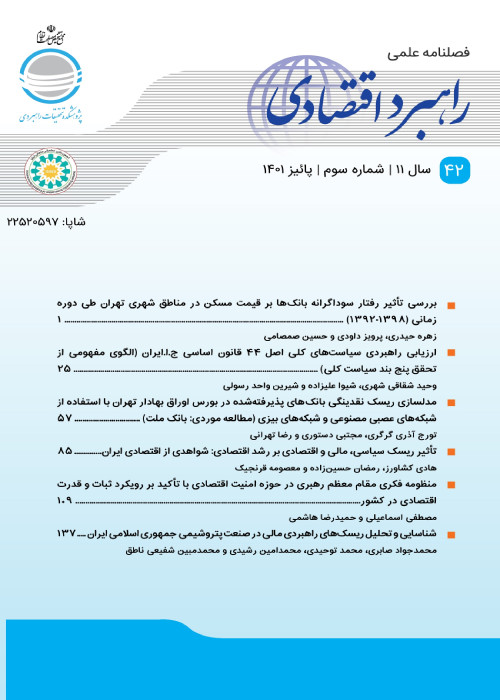The effect of central bank independency and policy targeting on inflation control in developing countries
Inflation is one of the most important economic problems that imposes a lot of costs on society by disrupting macroeconomic indicators, which are reflected in the reduction of economic growth rate, rising unemployment rate and unequal distribution of income. In addition, high inflation and instability of inflation damage the credibility of macroeconomic policymakers, especially the central bank, and its continuation can lead to acute cases of political instability in countries. At the same time, uncertainties due to high inflation rates increase inflation expectations. Accordingly, solutions to control inflation have been proposed. One of these proposals was the independence of the central bank, which has gained many supporters since the 1980s. With regard to this issue, in this study, the effect of central bank independence and policy targeting on inflation control in the economies of 22 Asian countries was examined using the panel data approach during the period 2019-2010. The results of the study indicate that among the variables studied in the previous period inflation, trade freedom and monetary base have a positive and significant effect on current period inflation. In contrast, central bank independence, initial equilibrium, financial development, and exchange rate regimes have a significant negative impact on the dependent variable, inflation in the current economies of 22 Asian countries.
-
Identifying the Function of Systematic Risks on the Financial Prosperity of the Insurance Industry over Time
Habib Shirafken Lamso, *, Seyyed Mehdi Ahmadi
Journal of Economic Modeling Research, -
Determining non-fragile risks on financial solvency in insurance industry: A new approach to averaging models
H. Shirafkan Lamso, A. Gholami *, S.M.M. Ahmadi
Iranian Journal of Insurance Research, -
طراحی مدل مالیات اسلامی: مطالعه کیفی
سعیده صادقی *، ، محمدمهدی احمدی
نشریه رویکردهای نوین در علوم مدیریت، بهار 1402



